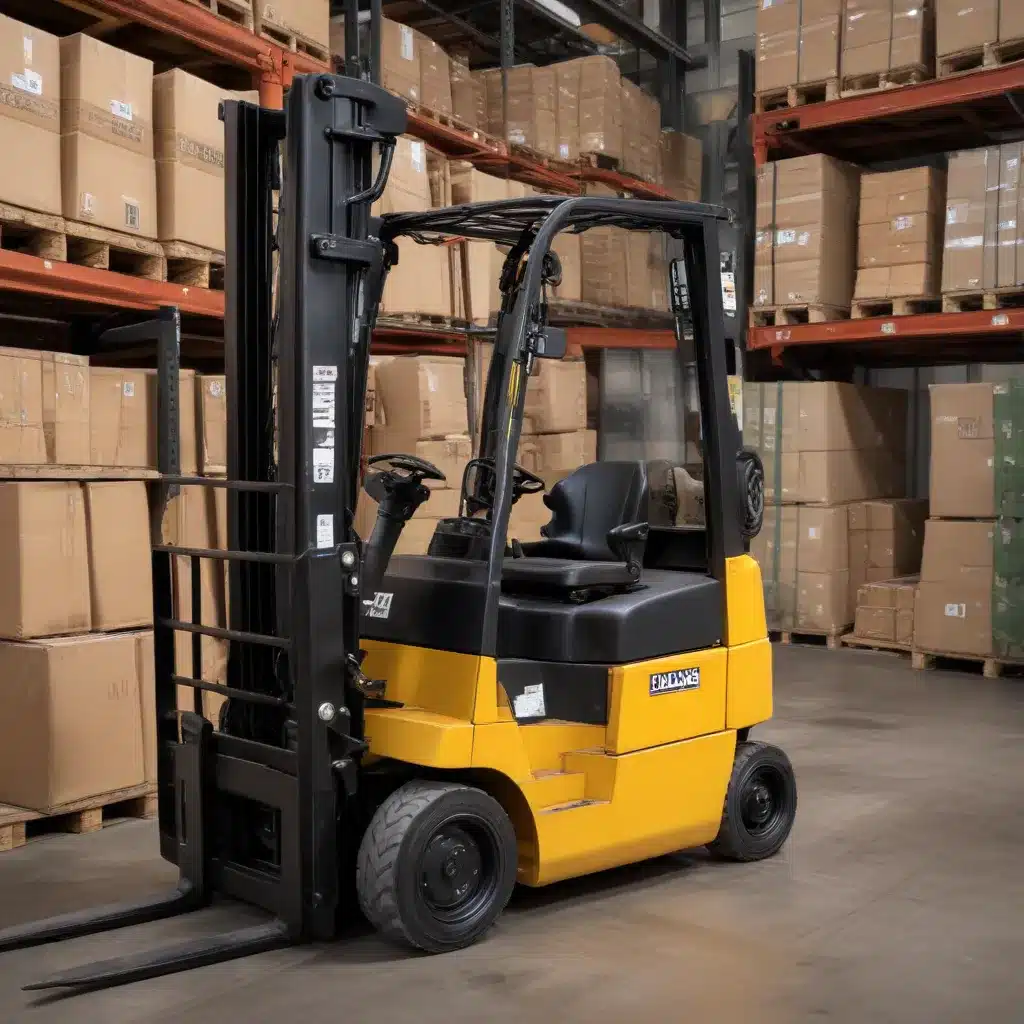
The Importance of Load Management in Forklift Operations
Load management is a crucial aspect of forklift fleet operations that can have a significant impact on overall costs and efficiency. Proper load management involves carefully monitoring and controlling the weight, distribution, and handling of loads carried by forklifts. By implementing effective load management practices, warehouse and logistics professionals can optimize forklift performance, enhance safety, and achieve substantial cost savings.
Maximizing Forklift Efficiency and Lifespan
Effective load management is essential for maximizing the efficiency and lifespan of forklift fleets. When loads are properly balanced and within the rated capacity of the forklift, it reduces wear and tear on the machinery, resulting in fewer maintenance requirements and a longer operational lifespan. Overloading forklifts can lead to premature component failures, increased fuel consumption, and more frequent breakdowns, all of which contribute to higher overall costs.
Enhancing Safety and Preventing Accidents
Load management also plays a crucial role in enhancing safety within the warehouse environment. Properly distributed and secured loads reduce the risk of tip-overs, load shifts, and other accidents that can endanger operators and damage valuable inventory. By ensuring that loads are within the forklift’s rated capacity and evenly distributed, the center of gravity is maintained, improving stability and control during operation.
Minimizing Product Damage and Waste
Ineffective load management can lead to significant product damage and waste, which can have a substantial financial impact on warehouse operations. Improperly secured or overloaded pallets may shift or collapse during transport, resulting in damaged goods and wasted inventory. By optimizing load handling, businesses can minimize product damage and reduce the costly expenses associated with unsellable or returned goods.
Leveraging Technology for Effective Load Monitoring
The advent of advanced technologies has provided warehouse managers with powerful tools to monitor and optimize forklift load handling. These solutions offer real-time data and insights to help streamline operations, improve safety, and reduce costs.
Load Sensing and Weight Monitoring
Forklift-mounted load sensors and weight monitoring systems can provide precise, real-time information on the weight and distribution of loads. This data allows operators to ensure that loads are within the forklift’s rated capacity and evenly balanced, reducing the risk of accidents and minimizing product damage.
Integrated Software and Analytics
Integrating load monitoring systems with warehouse management software (WMS) and fleet management systems enables comprehensive data analysis and optimization. These solutions can track load weights, monitor usage patterns, and identify areas for improvement, empowering warehouse managers to make data-driven decisions and implement cost-saving strategies.
Predictive Maintenance and Preventive Measures
By analyzing load data and usage trends, forklift fleet management systems can help predict potential maintenance issues and take preventive measures to extend the lifespan of the equipment. This proactive approach reduces unplanned downtime, lowers repair costs, and enhances the overall efficiency of the forklift fleet.
Industry Standards and Compliance
Adhering to industry standards and regulatory requirements is essential for ensuring the safety and legality of forklift operations. Warehouse managers must be familiar with guidelines set forth by organizations such as the Occupational Safety and Health Administration (OSHA) and the American National Standards Institute (ANSI) to ensure that their load management practices comply with these standards.
OSHA Regulations for Load Handling
OSHA regulations stipulate specific requirements for forklift load capacities, load positioning, and operator training. Failure to comply with these regulations can result in hefty fines and, more importantly, endanger the safety of warehouse personnel and the integrity of inventory.
ANSI Standards for Forklift Operations
The ANSI B56.1 standard provides comprehensive guidelines for the design, construction, and safe operation of forklifts. This includes recommendations for load handling, load distribution, and operator training. Aligning forklift load management practices with ANSI standards helps ensure the overall safety and efficiency of warehouse operations.
Best Practices for Effective Load Management
Implementing a comprehensive load management strategy can yield significant benefits in terms of cost savings, safety, and operational efficiency. Here are some best practices to consider:
Establish Detailed Load Capacity Guidelines
Clearly define and communicate the load capacity limits for each forklift model in your fleet. Ensure that operators are trained on these guidelines and understand the importance of adhering to them.
Implement Forklift-Mounted Load Sensors
Invest in forklift-mounted load sensors or weighing systems to provide real-time data on load weights and distribution. This information can be integrated with your WMS or fleet management software for comprehensive analytics and optimization.
Provide Comprehensive Operator Training
Regularly train forklift operators on proper load handling techniques, load balancing, and safe operating procedures. Emphasize the importance of adhering to load capacity limits and monitoring load distribution.
Regularly Inspect and Maintain Forklifts
Implement a robust preventive maintenance program to ensure that your forklift fleet is in optimal condition. This includes inspecting critical components, such as tires, hydraulics, and brakes, to maintain the integrity and stability of the equipment.
Utilize Advanced Fleet Management Software
Leverage fleet management software that integrates load monitoring, predictive maintenance, and cost-tracking capabilities. These tools can provide valuable insights to help you make informed decisions and optimize your forklift operations.
By adopting these best practices and leveraging the power of technology, warehouse and logistics professionals can unlock the full potential of their forklift fleets, enhance safety, reduce costs, and drive overall operational efficiency.
Conclusion
Effective load management is a crucial component of successful forklift fleet operations. By prioritizing load monitoring, adhering to industry standards, and implementing best practices, warehouse managers can optimize forklift performance, improve safety, and achieve substantial cost savings. Through the strategic use of advanced technologies and a commitment to continuous improvement, businesses can streamline their material handling processes and maintain a competitive edge in today’s dynamic warehouse environment.
To learn more about forklift reviews, safety guidelines, maintenance, and industry trends, visit Forklift Reviews.

